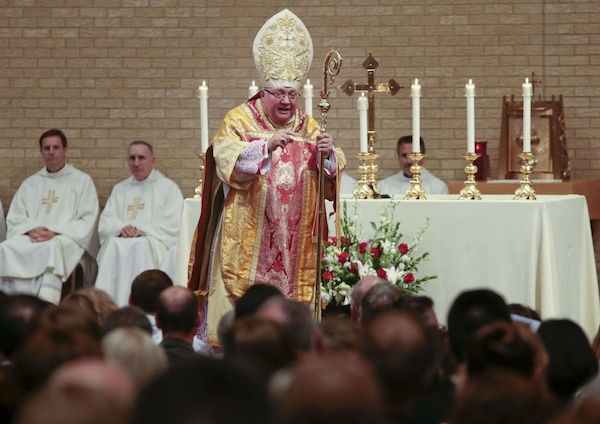
By
At least two online petitions have been started to protest the decision by Madison’s ironically conservative Catholic diocese to provide advice to priests on whether some gay deceased should be denied funeral rites.
As a Christian, I find it repugnant that any religious institution calling itself Christian would wobble on whether to give a grieving family a Christian burial for their loved one. As if deeming homosexuality a sin weren’t silly enough, the Catholic Church considers denying spiritual comfort to the families of gay people.
Just as bad is the harm such un-Christ-like behavior could do to Christianity’s brand and its relationship to government.
One of the petitions calls for Pope Francis to remove Madison Bishop Robert Morlino from his position, while the other calls on Morlino to rescind the guidance allowing priests to deny full funeral rights to gay Catholics. Both miss the point.
Recalling Morlino isn’t going to suddenly cause the church to fully accept gays and become what my denomination calls “open and affirming.” Francis has talked a better talk on this issue, but he’s yet to walk a better walk — which is why it wouldn’t be in line with Catholic teachings for the Madison diocese to declare that the gay deceased are entitled to funeral rites.
Refusing the rites to a specific class of people doesn’t raise the same kinds of constitutional questions raised by, say, a baker refusing to bake a cake for a gay wedding.
“The courts, in the name of protecting religious liberty, typically have given religious organizations fairly wide latitude to engage in practices that might seem to be discriminatory in a secular context,” said Shawn Peters, an expert in religious freedom from UW-Madison.
The, ahem, good news is that if a gay person or her family wants a Christian burial, there are plenty of Christian churches that will provide it — as long as those wanting the funeral don’t consider Catholicism is the only true Christianity, in which case they shouldn’t expect a Catholic funeral anyway.
The bad news is that because of the Catholic Church’s considerable size and influence, the pronouncements of Morlino and Co. put Christianity generally in a bad light, while making it look as if longstanding tax breaks for Christian churches and clergy amount to government endorsement of bigotry.
Peters said he didn’t think that in our “current political environment” tax breaks for religious organizations are “seriously at risk.” But earlier this month a federal judge struck down a tax break for clergy housing allowances.
I’m not sure any occupation should be singled out for a housing-related tax break, although it seems a small indulgence given how little clergy are paid and how much they help raise for charity the government might otherwise have to provide. One 2013 analysis estimated Catholic groups spent some $30 billion on social services annually, although some of their funding comes from government.
Christians can find evidence of such mission work just about every Sunday at church. But the work looks less Christ-like if the church deems some people unworthy of Christ’s grace, including after they die.
Complete Article ↪HERE↩!
Madison diocese advice to priests on LGBT funerals causes grief
File Under: Insulated, monolithic, callous, tone deaf church power structure

A top aide to Bishop Robert Morino issued guidance to priests in the Catholic Diocese of Madison that critics say could limit the availability of funeral rites within the church for gay people.
Vicar General James Bartylla emailed a newsletter to priests earlier in October, with the bishop’s approval, that says rites “may be denied for manifest sinners” if they would cause unavoidable “public scandal of the faithful,” the Wisconsin State Journal reported this week.
The message laid out a series of “general considerations” for priests to keep in mind if asked to perform Catholic funeral rites by a deceased person’s family or same-sex partner, including whether “the deceased or the ‘partner’ was a ‘promoter of the gay lifestyle.’”
The “attitude” of the deceased’s family members, especially toward the church, and whether the deceased person showed “some signs of repentance before death,” also were cited as prominent considerations.
“My short answer to pastors and parochial vicars in these cases is to think through the issue thoroughly and prudently,” Bartylla wrote in the email. “The pastoral task is to minimize the risk of scandal and confusion to others amidst the solicitude for the deceased and family.”
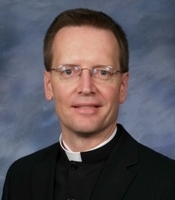
Diocese spokesman Brent King in emails to the newspaper stressed what he described as the advisory nature of the vicar general’s message.
“The only word used in Saturday’s email was ‘consideration’ or ‘considerations,’” King said. “There were no directives, bans, or even real guidelines. other than what is written in canon law. If there was any directive, it was, ‘Think through the issue thoroughly and prudently.’”
The newsletter said any surviving partner “should not have any public or prominent role” at any church funeral rite.
It also said there should be no mention of the surviving partner’s name and no reference to “the unnatural union” in “any liturgical booklet, prayer card, homily, sermon, talk by the priest, deacon, etc.?…”
An advocacy group for lesbian, gay, bisexual and transgender Catholics said the message only served to distance LGBT people and their families from the church.
“This document is the very antithesis of pastoral care,” Marianne Duddy-Burke, executive director of DignityUSA, said in a statement . “It shows that this bishop believes that lesbian and gay people who have lived a deep commitment to a spouse or partner should be demeaned even in death. Our families could be refused the sacraments of our faith at the moment of their greatest grief.”
A diocesan statement criticized the public airing of Bartylla’s message, which emerged through the Minnesota-based progressive Catholic blog Pray Tell.
“Those who place at risk the ability of the bishop to communicate with his priests confidentially do a grave harm to the Church and perform, indeed, what Sacred Scripture calls ‘a work of darkness,’” the statement said.
Complete Article HERE!
Coming Out and Faith: A Catholic Queer Woman Latches on to Hope
This month LGBT Americans observed National Coming Out Day, which serves as a call to be out and proud and a recognition that showcasing your identity is an empowering act that can also help change anti-LGBT attitudes. But one’s religious beliefs can sometimes complicate coming out. The Advocate has interviewed people from a variety of faiths about how their religion affected their coming-out and vice versa. In the first in this series, we speak to a graduate student at a Roman Catholic college.
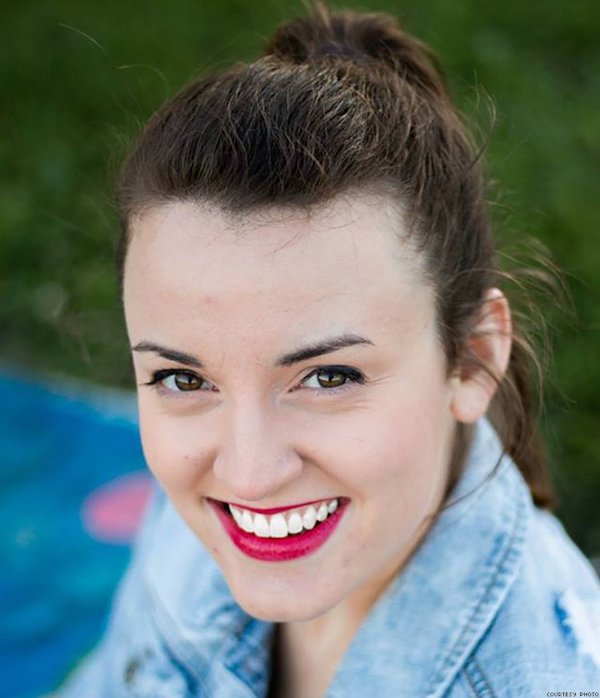
By Trudy Ring
Elizabeth Sextro realizes the Roman Catholic Church probably won’t change its teachings on homosexuality in her lifetime — but that doesn’t keep the 20-something theology graduate student from identifying both as a queer woman and a faithful Catholic.
Reconciling these two identities was “definitely a difficult process,” says Sextro, who’s working on a master’s degree in theological studies at Boston College’s School of Theology and Ministry. Nevertheless, she says, “it’s who I am.”
Sextro, a self-described “cradle Catholic” originally from St. Louis, came out as queer in 2012, when she was an undergraduate at Loyola University in Chicago. “Coming out at college was really easy,” she says. “I had a lot of supportive friends.”
She was able to resolve any conflict between her queer and Catholic identities, she says, through her studies and through talking with those supportive friends who had been through similar experiences.
It also helped that Loyola, like Boston College, is run by the Jesuits, a Catholic religious order known for scholarship and progressive ideology. She studied queer theology, which rejects the idea that LGBT people are abnormal or disordered, as the Catholic Church has long held, and she had a faculty mentor, a straight layman, who encouraged her.
Coming out to her parents was more problematic. They aren’t quite at a place of acceptance even now, she says, but they have advanced to the point that she can bring her female partner home. “We still have work to do,” Sextro says of her family relationship.
There is certainly still work to do in the church, where, she says, the faithful are far ahead of the hierarchy. “I see gay people everywhere” when she attends Catholic services, says Sextro, who divides her time between a couple of congregations in Boston.
The church deems same-sex relationships sinful, and it expects Catholics with same-sex attractions to avoid acting on them. The catechism — a summary of church doctrine — holds that “homosexual acts are intrinsically disordered.” Pope Francis, while more conciliatory toward LGBT people than his predecessors were, has held to traditional doctrine. But many in the church are rejecting anti-LGBT teachings and recognizing that the language in the catechism is harmful, Sextro notes.
“It’s going to be baby steps from here on out,” she says of the process of changing the church. It may even have women priests before it discards anti-LGBT doctrine. “It’s not going to happen in my lifetime, but hopefully it will,” says Sextro, who expects to finish her master’s degree in the spring, then aims to eventually get a Ph.D. and teach at the university level.
One of the main reasons she stays in the church, she said, is to help that change along. “I stay because there is more work to be done in the church and because I feel committed and responsible as an aspiring theologian myself to offer a critical perspective to the Catholic Church,” she says. “That’s not to say that I have not considered leaving — I certainly have. That would be a heck of a lot easier. But I borrow from one of my professors at the [School of Theology and Ministry] in saying this: If you are looking for a perfect church in this life, you will be looking forever. No church is perfect, and I stay because I can offer something to the church as a queer woman and theologian that may bring the church a little bit closer to working toward justice. I wouldn’t stay if I didn’t have hope.”
For LGBT Catholics to be out and proud can contribute to change, she says, but she recognizes that coming out is an individual decision. “Coming out is really difficult,” she says. “No one should feel pressure to come out in order to advance a certain cause.”
Part of being a person of faith, she adds, is “putting trust in something outside of yourself” and realizing that some things are out of your control. That approach is also helpful when thinking about progress in the church — knowing she can make a contribution, but she can’t make it all happen, she says. And then there is what Emily Dickinson called “the thing with feathers — that perches in the soul … and never stops.”
“I’ve really latched on to hope,” Sextro says. “And I think hope is huge.”
Complete Article HERE!
Vatican diplomat recalled amid child porn investigation
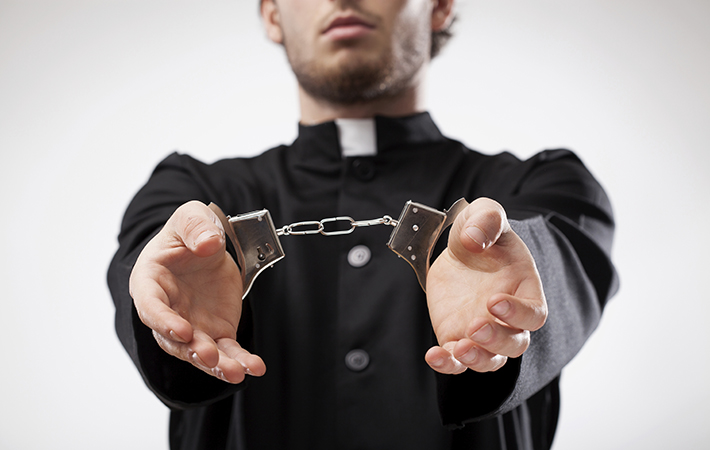
By NICOLE WINFIELD and MATTHEW LEE
A high-ranking priest working in the Vatican’s embassy in Washington has been recalled after U.S. prosecutors asked for him to be charged there and face trial in a child pornography investigation, Vatican and U.S. officials said Friday.
The diplomat was suspected of possessing, but not producing or disseminating, child pornography including images of pre-pubescent children, a U.S. source familiar with the case said. The source was not authorized to discuss the matter publicly and spoke on condition of anonymity.
The Vatican declined to identify the priest, but said he was currently in Vatican City and that Vatican prosecutors had launched their own probe and sought evidence from the U.S.
If the accusations pan out, the case would be a major embarrassment for the Vatican and Pope Francis, who has pledged “zero tolerance” for sexual abuse. The diplomat would be the second from the Vatican’s diplomatic corps to face possible criminal charges for such crimes during Francis’ papacy. And any trial in the Vatican would come as Francis’ own financial czar, Cardinal George Pell, is on trial in his native Australia for alleged historic sex abuse cases.
The State Department said it had asked the Vatican to lift the official’s diplomatic immunity on Aug. 21. It said that request was denied three days later. For the State Department to make such a request, its lawyers would have needed to be convinced that there was reasonable cause for criminal prosecution.
The circumstances that prompted prosecutors to make the request, however, weren’t clear. The Justice Department, which would have brought any charges, didn’t immediately comment, and the Vatican gave no details about what, if any, evidence had been provided to persuade it to recall the priest.
In a statement, the Vatican said the State Department had notified the Vatican on Aug. 21 of a “possible violation of laws relating to child pornography images” by one of its diplomats in Washington.
A U.S. official familiar with the case said the priest was a senior member of the Vatican embassy staff. The Vatican yearbook lists three counselors who work under the nuncio, or ambassador.
The Vatican said recalling the priest was consistent with diplomatic practice of sovereign states. In declining to identify him, the Vatican said the case was subject to confidentiality while still under investigation. It said the Vatican had asked for information about the case from the U.S; it wasn’t clear if any had been provided.
The Vatican has recalled envoys before, including its then-ambassador to the Dominican Republic, who was recalled in 2013 after being accused of sexually abusing young boys on the Caribbean island.
The Vatican justified its decision to remove Monsignor Jozef Wesolowski from Dominican jurisdiction by submitting him first to a canonical court proceeding at the Vatican, and then putting him on trial in the Vatican’s criminal court, which has jurisdiction over the Holy See’s diplomatic corps.
Wesolowski was defrocked by the church court. But he died before the criminal trial got underway. Dominican prosecutors initially balked at the recall, and they never filed charges because of his immunity.
After he was defrocked, Wesolowski lost his diplomatic immunity and the Vatican said he could be tried by other courts. However, it refused to provide Dominican authorities with information about his whereabouts or how even he had pleaded to the charges.
The Vatican doesn’t have extradition treaties.
The Vatican in 2013 specifically criminalized child porn possession, distribution and production in its criminal code. Possession carries a possible jail term of up to two years and a 10,000-euro fine. Distribution can be punished with a term of up to five years and a 50,000-euro fine, while the most serious offense of production can bring a 12-year term and 250,000-euro fine.
The head of the U.S. Conference of Catholic Bishops, Cardinal Daniel N. DiNardo of Galveston-Houston, said the case was serious and that he hoped the Vatican would be “forthcoming with more details.”
“We reaffirm that when such allegations occur, an immediate, thorough and transparent investigation should begin in cooperation with law enforcement and immediate steps be taken to protect children,” DiNardo said in a statement.
Francis has a spotty record on handling sex abuse cases. He won praise from advocates of survivors of abuse for having established a commission of experts to advise the church on keeping pedophiles out of the priesthood and protecting children. But the commission has floundered after losing the two members who themselves were survivors of abuse.
Francis’ promotion of Pell to be his finance czar when allegations abounded in Australia about his past conduct, as well other appointments, in-house decisions and his scrapping of a proposed tribunal to prosecute negligent bishops also have raised questions.
Complete Article HERE!
The Catholic Church’s child sexual abuse tragedy revealed in groundbreaking Australian five-year study
Celibacy a key risk factor in child sexual abuse by Catholic clergy, report finds A groundbreaking Australian study describes child sexual abuse in the Catholic Church as a global tragedy
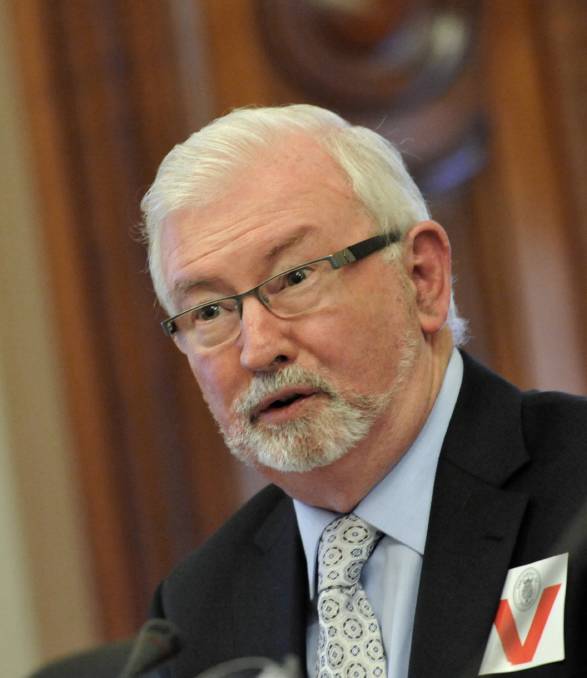
By
MANDATORY celibacy, the denigration of women and the Catholic Church’s “deeply homophobic environment” are key factors in the church’s global child sexual abuse tragedy, a ground-breaking Australian research study by two former Catholic priests has found.
Mandatory celibacy “remains the major precipitating risk factor for child sexual abuse”, Dr Peter Wilkinson and Professor Des Cahill of RMIT University’s Centre for Global Research found after a five-year study into systemic reasons for child sexual abuse within the Catholic Church.
Catholic children, and particularly boys, remained at risk from “psychosexually immature, sexually deprived and deeply frustrated priests and religious brothers”, and the “deeply homophobic environment” within the church and its seminaries “contributes to psychosexual immaturity”, the report released on Wednesday found.
An assessment of 26 key Catholic child sexual abuse studies around the world, including the NSW Special Commission of Inquiry into Maitland-Newcastle diocese, a Victorian parliamentary inquiry and the Royal Commission into Institutional Responses to Child Sexual Abuse, shows about one in 15 priests commit offences against children.
Rates differ across dioceses and among religious congregations. The risk of offending is much higher among religious brothers with little contact with women, who were educated at male-only schools, appointed to male-only schools and living in all-male communities, the report found.
“The lack of the feminine and the denigration of women within church structures is one key, underlying risk factor in the abuse,” Dr Wilkinson and Professor Cahill said.
Peter Wilkinson and I set out to try to answer the question: Why has the Catholic Church and its priests and religious brothers, more than any other religious denomination, become synonymous with the sexual mistreatment of children?
A decision by Pope Pius X in 1910 to lower the confessional age to seven indirectly put more children at risk of abuse, and popes and bishops created a “culture of secrecy” which led to “gross failures in transparency, accountability, openness and trust”, they found.
The study explored how Catholic organisational policies, practices, processes and attitudes predisposed, influenced and facilitiated individuals to commit sexual and physical abuse against children.
It also explored how the church’s theological frameworks, organisational structures, governance processes and culture contributed to the abuse and church leaders’ inadequate responses.
It included an assessment of the NSW Special Commission of Inquiry in 2013 into offending by priests Denis McAlinden and Jim Fletcher in the Maitland-Newcastle diocese over decades, and the responses of former bishops Leo Clarke and Michael Malone.
The report concluded McAlinden, an Irish Redemptorist priest sent to Australia in 1949 at the age of 26, was one of the country’s “most prolific paedophile priests”, whose transfer from Ireland was because his religious leader “wanted McAlinden out of Ireland, and far-away Australia seemed a good bet”.
Professor Cahill and Dr Wilkinson said the NSW Special Commission of Inquiry, headed by Margaret Cunneen, SC, had “undoubted achievements”, but it was unfortunate that it did not examine all cases of priest offending in the Diocese of Maitland–Newcastle in the post-World War II period.
“It is also unfortunate that, because of its technical and narrow legal focus, it did not examine the personal, family and seminary circumstances of either offender, or the structural and systemic factors that permitted McAlinden and Fletcher to offend for so long without being held accountable,” they found.
The lack of the feminine and the denigration of women within church structures is one key, underlying risk factor in the abuse.
The groundbreaking report, Child Sexual Abuse in the Catholic Church: An Interpretive Review of the Literature and Public Inquiry, is believed to be the first informed by researchers with significant theological training and knowledge of church practices. Both men trained as Catholic priests and later left the priesthood.
Professor Cahill is Professor Emeritus of intercultural studies in the school of global, urban and social studies at RMIT University in Melbourne. Dr Wilkinson is a founding member of the Melbourne-based Catholics for Renewal group.
“Peter Wilkinson and I set out to try to answer the question: Why has the Catholic Church and its priests and religious brothers, more than any other religious denomination, become synonymous with the sexual mistreatment of children?” Professor Cahill said.
“From any perspective, whether in size, complexity or historical legacy, the Roman Catholic Church is an awesome entity. One may not like the Catholic Church, but no one can ignore it.”
While the global Catholic Church child sexual abuse issue had been described as a crisis, scandal, nightmare or scourge, “the sexual and emotional abuse of children within Catholic settings by priests, religious brothers and sisters, is ultimately a tragedy of immense proportions”, he said.
The report found that by 2015 the number of baptised Catholics in the world was 1.285 billion people, or 17.7 per cent of the world population.
Growth in the church was particularly strong in Africa, while in Asia and the Americas growth was in proportion to the population growth in each continent.
Between 1975 and 2015 the number of priests worldwide increased by just 2.7 per cent. The number of religious sisters and brothers declined significantly, with a 30 per cent drop in the number of sisters, and a 21 per cent drop in the number of brothers.
In 2014 6263 priests were ordained, 4484 priests died and 716 “defected”, or resigned.
There were 136,572 church mission stations around the globe without a resident priest, the report found.
Complete Article HERE!
